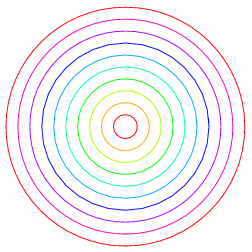Many people are still enamored with the idea that being successful in relationships is as easy as putting two healthy people together and hoping that will be enough to make the relationship work. As savvy, sophisticated, relational thinkers, however, we know this just isn’t true. We know that place in a relationship where the same issues keep resurfacing, seemingly unsolvable. At some point in every new relationship there’s always an opening crisis. One person is crazy in love and the other is afraid to make a commitment. One wants a dog, bird or child and the other doesn’t. There are financial struggles or problem with a stepchild. Ego’s get hurt and the crisis begins.
 Can we still love the person who’s turns out to be merely human and who wants something that disappoint us? Our worst, someone who wants to turn our lives inside and upside down?
Can we still love the person who’s turns out to be merely human and who wants something that disappoint us? Our worst, someone who wants to turn our lives inside and upside down?
The circuitous, long meandering power struggle, where the same fights happen over and over, is a journey of emotional intensity. The power struggle is inevitable because the energies of our personalities are invested in protecting us from feeling pain.
As our relationship goes through the power struggle, it is no longer being carried by the coils of romantic love. Instead, it’s being dragged along by disappointment, frustration, and resentment. Many couples think, “Why hasn’t our love fulfilled our dreams? Why doesn’t it look like the fairy tales we see in the movies? Why is this nightmare happening?”
Here’s some good news! At this point, we have a choice. We can say, “This person isn’t everything, so I’m out of here!” … Or we can say, “This is my opportunity to deal with my own emotional issues and stop being angry at my caretakers for abandoning, neglecting or smothering me.” We can either get stuck in the blame game or muster the courage to begin looking at ourselves. We can stop being slapped around and controlled by our emotions. 
 In this laborious cyclical process, we confront our emotional issues and our relationship becomes an invitation to the spiritual. The invitation is an opportunity to view ourselves in a larger context. For example, “what would it mean to stop thinking about our insecurities and demanding that every lover not abandon us?” “What would it mean to trust that the person we love won’t leave or suffocate us?” “What would it mean to stop being so afraid of everything and trust the universe of goodness?”
In this laborious cyclical process, we confront our emotional issues and our relationship becomes an invitation to the spiritual. The invitation is an opportunity to view ourselves in a larger context. For example, “what would it mean to stop thinking about our insecurities and demanding that every lover not abandon us?” “What would it mean to trust that the person we love won’t leave or suffocate us?” “What would it mean to stop being so afraid of everything and trust the universe of goodness?”
For many of us, this type of growth and maturity will take many relationships until we finally surrender to love’s higher agenda. The energies of our personality do not give in easily. We are so certain and overconfident of what a relationship should look like that, only when it’s been battered, humbled and scathed do we finally give up the fairy tale fantasy and seek real love.
Wishing you joy on the journey!